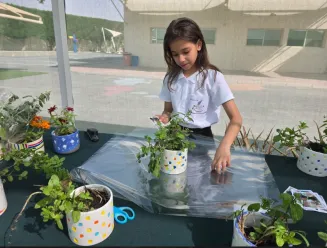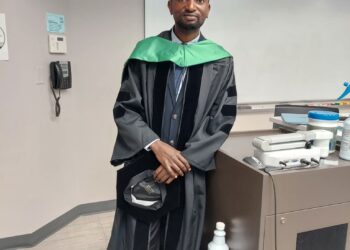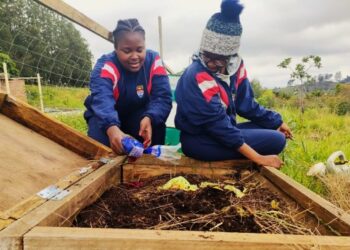As global leaders gather for COP30 to advance climate action, the United Nations Educational, Scientific and Cultural Organization (UNESCO) is spotlighting Qatar’s innovative approach to greening education, where schools are transforming into hubs for sustainability and student-led climate initiatives.
Through its Greening Education Partnership (GEP) — a global initiative involving 97 countries and more than 1,900 organizations — UNESCO is helping countries reimagine their education systems as engines of sustainability and resilience.
In Qatar, this effort is being implemented through the Foundation for Environmental Education (FEE) and its Eco-Schools Programme, coordinated nationally by the Earthna Center for a Sustainable Future, part of the Qatar Foundation. According to UNESCO, more than 80 schools have now registered as Eco-Schools in the country, with 21 schools earning the prestigious Green Flag Award for excellence in sustainability.
UNESCO noted that 40 of these Eco-Schools are part of the UNESCO Associated Schools Network, working to embed sustainability principles in every aspect of learning — from classroom lessons to campus operations and community engagement.
> “These schools are not just reducing their environmental footprint; they are empowering students to become agents of change,” UNESCO stated in a release marking the progress of its Greening Education Partnership in Qatar.
Student Innovation Leading the Way
Two school-based projects in Qatar have particularly stood out for their creativity and impact, according to UNESCO’s report.
1. The Greenhouse Café – Qatar Academy Sidra Primary
At Qatar Academy Sidra Primary, students created the Greenhouse Café, a sustainability-focused project that combines gardening, nutrition, and environmental education. The initiative allows students to grow their own produce, design eco-friendly menus, and lead workshops on sustainable living.
Entirely student-driven, the café connects classroom knowledge with real-world practice while promoting teamwork and leadership. It also engages teachers, parents, and local partners in discussions about food waste, responsible consumption, and environmental stewardship.
UNESCO said the Greenhouse Café aligns with its Green School Quality Standard by linking student projects to community needs, strengthening climate adaptation knowledge, and promoting intergenerational learning.
2. The Munch Machine – Doha British School Ain Khaled
At Doha British School Ain Khaled, students introduced The Munch Machine — Qatar’s first recycling vending machine. Supported by Earthna, the machine rewards students with “House Points” for recycling plastic bottles and cans, turning sustainability into an interactive experience.
Teachers and students track the collected data, analyse recycling patterns, and raise awareness within the school community. UNESCO praised the initiative for “making sustainability tangible, interactive, and fun,” and for showing how “youth-led innovation can advance circular economy goals.”
Qatar’s Commitment to Greening Education
UNESCO highlighted that both projects illustrate Qatar’s growing national commitment to integrating climate education into its school system. Under the guidance of the Greening Education Partnership, teachers, parents, and local communities are actively involved in fostering environmental awareness and sustainable practices among learners.
The initiatives also support the broader goals of the Qatar National Vision 2030, which emphasizes environmental development and sustainability as key pillars of national progress.
UNESCO’s Global Role in Climate and Education
UNESCO, which serves as the secretariat of the Greening Education Partnership, continues to play a pivotal role in ensuring that education systems worldwide contribute to climate mitigation, adaptation, and resilience.
The organization provides technical guidance, training, and international visibility for innovative school-based initiatives like those in Qatar. It also uses global platforms such as COP30 to advocate for stronger investments in climate education.
> “Education is crucial for empowering individuals and communities to understand and address the challenges of climate change,” UNESCO said. “Through the Greening Education Partnership, we aim to transform schools into catalysts for sustainable change.”
Each year, the annual meeting of the Greening Education Partnership is held alongside the COP Conference, in collaboration with the COP presidency, further reinforcing UNESCO’s leadership in climate-focused education worldwide.
About the Greening Education Partnership (GEP)
Launched by UNESCO, the Greening Education Partnership (GEP) brings together governments, schools, NGOs, and private partners to accelerate climate action through education. The initiative promotes four key pillars: greening schools, greening curricula, greening teacher training, and greening communities.
For more information on UNESCO’s Greening Education Partnership and related climate education initiatives, visit



















































































 EduTimes Africa, a product of Education Times Africa, is a magazine publication that aims to lend its support to close the yawning gap in Africa's educational development.
EduTimes Africa, a product of Education Times Africa, is a magazine publication that aims to lend its support to close the yawning gap in Africa's educational development.